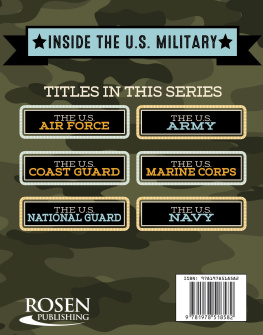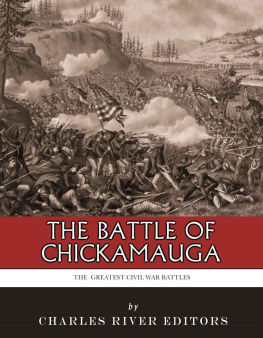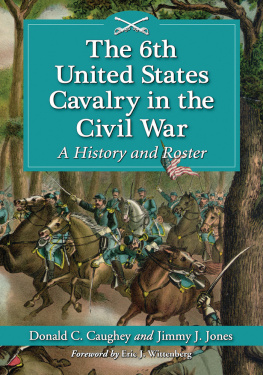

This edition is published by PICKLE PARTNERS PUBLISHINGwww.picklepartnerspublishing.com
To join our mailing list for new titles or for issues with our books picklepublishing@gmail.com
Or on Facebook
Text originally published in 1887 under the same title.
Pickle Partners Publishing 2014, all rights reserved. No part of this publication may be reproduced, stored in a retrieval system or transmitted by any means, electrical, mechanical or otherwise without the written permission of the copyright holder.
Publishers Note
Although in most cases we have retained the Authors original spelling and grammar to authentically reproduce the work of the Author and the original intent of such material, some additional notes and clarifications have been added for the modern readers benefit.
We have also made every effort to include all maps and illustrations of the original edition the limitations of formatting do not allow of including larger maps, we will upload as many of these maps as possible.
HARDTACK AND COFFEE
OR
THE UNWRITTEN STORY OF ARMY LIFE
INCLUDING CHAPTERS ON
ENLISTING, LIFE IN TENTS AND LOG HUTS, JONAHS AND BEATS, OFFENCES AND PUNISHMENTS, RAW RECRUITS, FORAGING, CORPS AND CORPS BADGES, THE WAGON TRAINS, THE ARMY MULE, THE ENGINEER CORPS, THE SIGNAL CORPS, ETC.
BY JOHN D. BILLINGS
AUTHOR OF "THE TENTH MASSACHUSETTS BATTERY"; PAST DEPARTMENT COMMANDER MASSACHUSETTS G. A. R.; FORMERLY OF SICKLES THIRD AND HANCOCKS SECOND CORPS, ARMY OF THE POTOMAC
ILLUSTRATED BY CHARLES W. REED MEMBER OF NINTH MASSACHUSETTS BATTERY; ALSO, TOPOGRAPHICAL ENGINEER ON GENERAL WARRENS STAFF, FIFTH CORPS, ARMY OF THE POTOMAC

TABLE OF CONTENTS
Contents
Preface.
During the summer of 1881 I was a sojourner for a few weeks at a popular hotel in the White Mountains. Among the two hundred or more guests who were enjoying its retirement and good cheer were from twelve to twenty lads, varying in age from ten to fifteen years. When tea had been disposed of, and darkness had put an end to their daily romp and hurrah without, they were wont to take in charge a gentleman from Chicago, formerly a gallant soldier in the Army of the Cumberland, and in a quiet corner of the spacious hotel parlor, or a remote part of the piazza, would listen with eager attention as he related chapters of his personal experience in the Civil War.
Less than two days elapsed before they pried out of the writer the acknowledgment that he too had served Uncle Sam; and immediately followed up this bit of information by requesting me to alternate evenings with the veteran from the West in entertaining them with stories of the war as I saw it. I assented to the plan readily enough, and a more interested or interesting audience of its size could not be desired than that knot of boys who clustered around us on alternate nights, while we related to them in an offhand way many facts regarded as too commonplace for the general histories of the war.
This trifling piece of personal experience led to the preparation of these sketches, and will largely account for the didactic manner in which they are written. They are far from complete. Many topics of interest are left untreatedthey will readily suggest themselves to veterans; but it was thought best not to expand this volume beyond its present proportions. It is believed that what is herein written will appeal largely to a common experience among soldiers. In full faith that such is the case, they are now presented to veterans, their children, and the public as an important contribution of warp to the more majestic woof which comprises the history of the Great Civil War already written. That history, to date, is a history of battles, of campaigns and of generals. This is the first attempt to record comprehensively army life in detail; in which both text and illustrations aim to permanently record information which the history of no other war has preserved with equal accuracy and completeness.
I am under obligations to many veterans for kindly suggestions and criticisms during the progress of this work, to Houghton & Mifflin for the use of Holmes Sweet little man, and especially to Comrade Charles W. Reed, for his many truthful and spirited illustrations. The large number of sketches which he brought from the field in 1865 has enabled him to reproduce with telling effect many sights and scenes once very familiar to the veterans of the Union armies, which cannot fail to recall stirring experiences in their soldiers life.
Believing they will do this, and that these pages will appeal to a large number to whom the Civil War is yet something more than a myth, they are confidently put forth, the pleasant labor of spare hours, with no claim for their literary excellence, but with the full assurance that they will partially meet a want hitherto unsupplied.
Cambridgeport, Mass., March 30, 1887.
I. The Tocsin Of War.
A score of millions hear the cry
And herald it abroad,
To arms they fly to do or die
For liberty and God.
E. P. Dyer.
And yet they keep gathering and marching away!
Has the nation turned soldier-and all in a day?
Theres the father and son!
While the miller takes gun
With the dust of the wheat still whitening his hair;
Pray where are they going with this martial air?
F. E. Brooks.
On the 6th of November, 1860, Abraham Lincoln, the candidate of the Republican party, was elected President of the United States, over three opponents. The autumn of that year witnessed the most exciting political canvass this country had ever seen. The Democratic party, which had been in power for several years in succession, split into factions and nominated two candidates. The northern Democrats nominated Stephen A. Douglas, of Illinois, who was an advocate of the doctrine of Squatter Sovereignty , that is, the right of the people living in a Territory which wanted admission into the Union as a State to decide for themselves whether they would or would not have slavery.
The southern Democrats nominated John C. Breckenridge, of Kentucky, at that time Vice-President of the United States. The doctrine which he and his party advocated was the right to carry their slaves into every State and Territory in the Union without any hindrance whatever. Then there was still another party, called by some the Peace Party , which pointed to the Constitution of the country as its guide, but had nothing to say on the great question of slavery, which was so prominent with the other parties. It took for its standardbearer John Bell, of Tennessee; and Edward Everett, of Massachusetts, was nominated as Vice-President. This party drew its membership from both of the others, but largely from the Democrats.

A Bell and Everett Campaigner.
Owing to these divisions the Republican party, which had not been in existence many years, was enabled to elect its candidate. The Republicans did not intend to meddle with slavery where it then was, but opposed its extension into any new States and Territories. This latter fact was very well known to the slave-holders, and so they voted almost solidly for John C. Breckenridge. But it was very evident to them, after the Democratic party divided, that the Republicans would succeed, and so, long before the election actually took place, they began to make threats of seceding from the Union if Lincoln was elected. Freedom of speech was not tolerated in these States, and northern people who were down South for business or pleasure, if they expressed opinions in opposition to the popular political sentiments of that section, were at once warned to leave. Hundreds came North immediately to seek personal safety, often leaving possessions of great value behind them. Even native southerners who believed thoroughly in the Unionand there were hundreds of suchwere not allowed to say so. This class of people suffered great indignities during the war, on account of their loyalty to the old flag. Many of them were driven by insult and abuse to take up arms for a cause with which they did not sympathize, deserting it at the earliest opportunity, while others held out to the bitter end, or sought a refuge from such persecution in the Union lines.
Next page
![Billings Hardtack & Coffee Or The Unwritten Story Of Army Life [Illustrated Edition]](/uploads/posts/book/252300/thumbs/billings-hardtack-coffee-or-the-unwritten-story.jpg)














